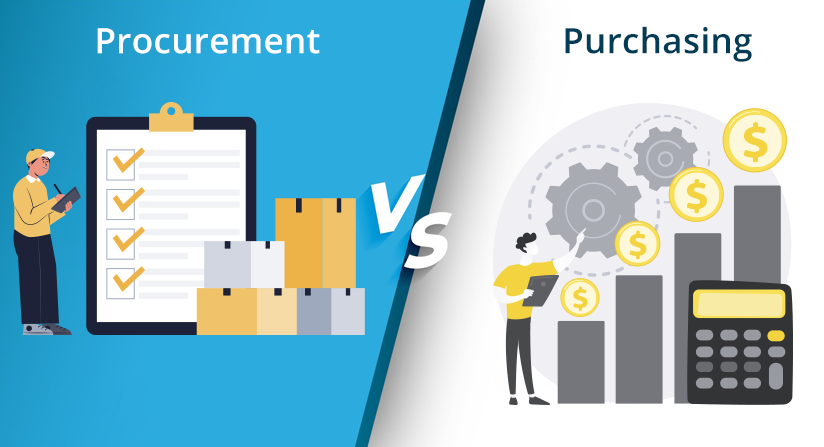Cloud ERP creates value by saving time and resources with exception management. Management principles often focus on optimizing a system. Exception management is focused on preventing problems before they occur.
What is Exception Management?
Let’s start with a definition of exception management. It is a type of process management that focuses on the exception ─ a problem or potential problem.
It is typical to focus on what your manufacturing business is doing right. But it may be much more beneficial to focus your efforts on limiting the number of things you are getting wrong.
Intelligent cloud ERP software, with its platform capabilities of real-time visibility, analytics, and automation, enables the diagnosis and correction of exceptions that could have a detrimental effect on manufacturing production or business management processes.
Exception Management Alerts with Cloud ERP
In general, most exceptions are related to one of the following:
- Data: Either incorrect or insufficient
- Time: Deadlines and/or violations
- Resources: Unavailable to promise
Intelligent cloud ERP software enables end-to-end visibility. The use of real-time data and dashboard analytics allows users to proactively manage exceptions by monitoring and responding to specific exception alerts. Some examples of these alerts are as follows:
- Production: When a machine is underperforming.
- Inventory: When approaching min/max inventory safety levels.
- Finance: When a certain spending limit has been exceeded.
- Quality: When there are issues concerning quality control.
- Timeline: When personnel have gone above or below an allotted amount of time for a task or process.
How Cloud ERP Software Drives Value Creation with Exception Management
Exception management, enabled by intelligent cloud ERP software, is an innovative way to increase value creation for the business and its customers. The ability to drive waste out of the process with cloud ERP software enables small and midsize manufacturers and distributors to lower costs and pass along the savings to their customers.
The 8-step Path to Value Creation with Exception Management and Cloud ERP
Process Optimization: Cloud ERP, built on a modern digital platform, enables growing manufacturing and distribution businesses to create value by optimizing their business processes. Automation of repetitive tasks, such as data entry, results, on average, in a 66% reduction in administrative work. Cloud ERP processes large volumes of data, enabling powerful real-time analytics that inform business decisions and increase annual production capacity by a remarkable 200%. Cloud ERP also maintains a history of every document created on the platform. This is how your sales team, with access to a single source of real-time information about your prospects and customers, can achieve a dramatic 100% reduction in sales query time.1
Standardization: Intelligent ERP Software, on a modern platform, standardizes the presentation of information, driving value through improved employee productivity. The uniform organization of role-based screens makes the system easy to use and quick to learn. Employees can work with fewer distractions, without the need to work across multiple screens in order to do their job. The standardized presentation of information also makes it easy for employees who take a job in another department to transition quickly.
Pre-Set Criteria: Another benefit of using intelligent ERP Software for exception management is that it enables you to include pre-set criteria to identify exceptions at different points in business management or manufacturing production processes. For instance, if you want to confirm the quality of goods before receiving them, you can set an automated quality control alert to check new incoming goods prior to acceptance.
Role-Based Dashboards: Using ERP software for exception management empowers employees to manage and correct exceptions with role-based dashboards that provide easy access to the exception-related data that is most closely related to their positions and duties.
For example, the manager of accounts payable can see when an employee has reached a pre-set budget limit. Or, the production manager can correct an overscheduling problem just by grabbing the operation in question and dragging it to another work center to see if capacity is available. Cloud ERP enables both exception management alerts and the ability to explore scenarios until a solution is found.
Real-Time Visibility: A modern cloud ERP platform provides real-time information and insight into your business processes. Knowledge about the current state enables the ability to look ahead and offset a potential exception before it occurs. For example, Shop Floor Execution Software (SFES), one of many ERP capabilities, enables a manager to see if a job is running behind schedule. The manager can proactively solve the problem by splitting the task and assigning it to two machines, staying on schedule. SFES enables real-time capture of machine and operator data. With this information, a manager can monitor productivity and efficiency, and associate consumed resources costs with specific jobs.
Collaboration: Real-time exception alerts enable teams to work collaboratively to resolve issues rapidly, regardless of time and distance. Collaboration and connection extend beyond the four walls of the business office or the plant floor. Growing manufacturers and distributors who run their businesses with cloud ERP can be digitally aggressive, selling directly to their customers on e-commerce platforms. In fact, 40% of industrial companies expect to see a broad shift in B2B buying habits over the next two years, as both buyers and sellers look for added value by shortening the supply chain.2
Customer Experience: If you’re not familiar with the #hashtag CX, you soon will be. In the age of smart phones and the always on e-commerce marketplace, customer service (a reactive model) has been replaced with the more encompassing name customer experience. Put simply, customer experience is the end-to-end, recurring lifecycle of a customer’s experiences with your product, your personnel, even with your production processes.
Almost 37% of best-run discrete manufacturing companies say that improving customer experience is a top priority in the next 12 months. And nearly 54% are improving customer experience with actionable data ─ real-time, single-source, accurate data from intelligent cloud ERP.
Conclusion
There are plenty of benefits to using cloud ERP software to manage your manufacturing business. Perhaps the greatest benefit of all, is the ability to re-think the way you run your business with forward-looking and effective manufacturing excellence strategies such as exception management.
If you’d like an answer to the question What is Manufacturing ERP and its core functionalities, you should find this resource helpful. If you would like to know more about the capabilities of cloud ERP, please contact us. We’re here to help.
Follow Us





